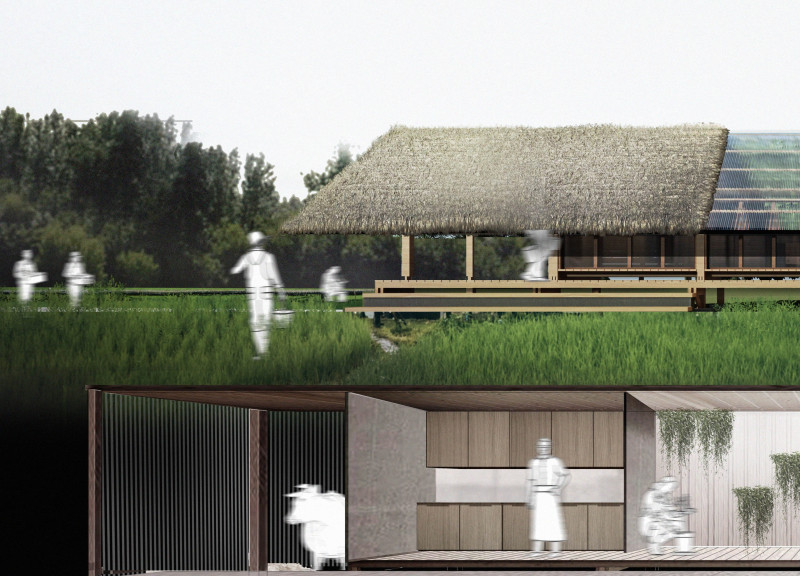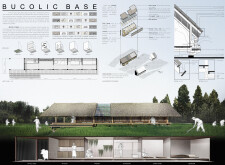5 key facts about this project
BUCOLIC BASE is an initiative in rural Thailand that aims to improve the living circumstances for farming communities. It focuses on creating homes that are adaptable and can grow with the families that live in them. By prioritizing simplicity and sustainability, the design works to connect everyday living spaces with agricultural practices, fostering a relationship between the two that supports both residents and their work.
Design Concept
The design features multiple modular units that can connect in various ways, allowing residents to adjust their living spaces based on their needs. This capability is essential as families grow or change over time. Each unit is linked by a terrace, creating a space for outdoor activities and interactions. This connection with the landscape encourages a sense of community, making it easy for families to bond over shared activities and responsibilities.
Materiality
The structure uses locally sourced materials to align with the surroundings and promote sustainability. Timber is the key structural element, valued for its availability and suitability for construction. Insulation is provided by palm leaves, helping to keep the temperatures comfortable inside the homes. Concrete is incorporated strategically to protect the wooden structures from moisture, enhancing their longevity in the humid climate of the area.
Sustainability Features
BUCOLIC BASE also includes features that promote sustainability. Solar panels are integrated into the design to harness energy, while rainwater collection systems support irrigation for crops. These features not only enhance the comfort of living spaces but also ensure that the inhabitants can maintain their agricultural activities efficiently. The design blends home and farm life, reflecting a practical approach to daily living in a rural setting.
Design Detail
One notable feature is the roof, designed using thatch to create an insulating air pocket that maintains a comfortable temperature indoors. This simple yet effective design choice enhances energy efficiency while also connecting to traditional building methods in the region. It reinforces the idea that modern solutions can coexist with cultural practices, making the design both innovative and familiar.




















































